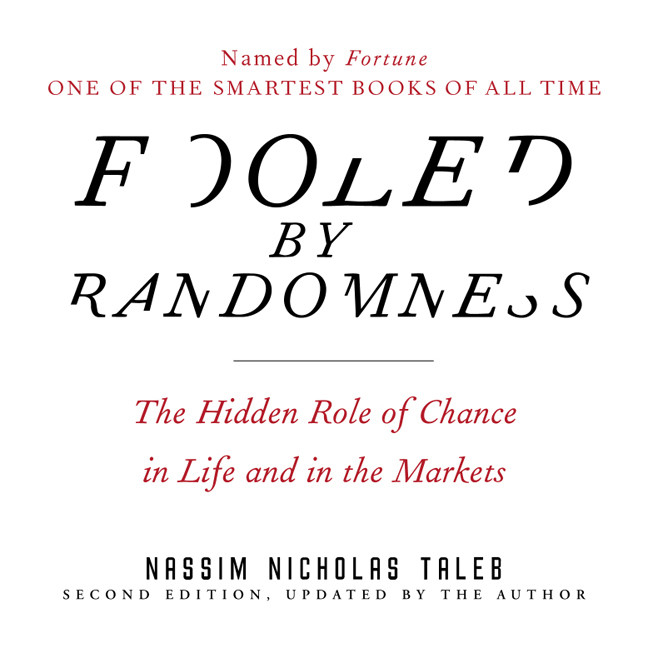‘Fooled by Randomness’ – Are You Too?
I have recently finished reading (listening) to the (audio)book title Fooled by Randomness by Nassim Nicholas Taleb.

Taleb, a probabilist, former trader turned life coach/mentor seemed to have achieved his cult status among statistic hobbyist as well as professionals. In fact, it was a trader colleague of mine introduced me to the book. “He might be a dick, but it was an interesting read”, a recommendation I was given and proven to be credible. The book was rather informative and entertaining enough to propel me through. Through the abundance of random rants and named attacks (the ‘dick’ bits), Taleb somehow found a way to quite convincingly convey his points.
Now the points. Those who only have skimmed through the abstract or critics reviews might have concluded that Taleb thinks successful people are lucky, which point he clearly denied in the book. Rather than thinking all successes are random, his presumption is to attribute success to randomness, unless proven otherwise. I can see how this narrative can purposely be framed into other forms and many people felt triggered by it.
The Fallacy of Conventional Thinking
The key takeaway I got from this book is that how humans are prone to trivial logic errors. Or to rephrase, what conventional thinking would be deemed true might actually be the direct opposite of reality. Consider below three statements and see if you agree with any of those.
A particular surgery procedure has a success rate of 99%. Your doctor comes to you and goes, ‘You are going to die I am afraid, there had been 99 success cases right before you’.
A wealth manager tells you that the life expectancy of this country is 78 years and now that you are 75, plan your finances accordingly.
A fear mongering financial analyst predicts a crash in the stock market, based on the fact that the S&P 500 index is 10% lower than the highest point of the year but in average stock prices are 40% lower than their highest points.
All three of these statements sound correct, while in reality, they are anything but. The number of previous success surgery cases will not increase (or decrease) the chance of success of yours, given it was an independent event. When you turn 75 years old, your life expectancy will be greater than the national average 78, as those who died before your age dragged down the stats of the group. The drop of S&P 500 from it’s highest point has no bearing of how much stocks dropped in average. The maximum of average is different from the average of maximum.
I must admit I would fall for two of these three false statements without Taleb’s enlightenment. While getting caught up in these fun trivia could be entertaining, the fallacy of conventional thinking can be dangerous when exhibited on more serious occasions. Taleb mentioned O.J. Simpsons’ court case as an example. If you have been paying enough attention you’ll find playing on this fallacy is one of the expertise a politician must master.
My takeaway – be mindful of the common logic errors, try not to fall for them, while always assumes that others would.